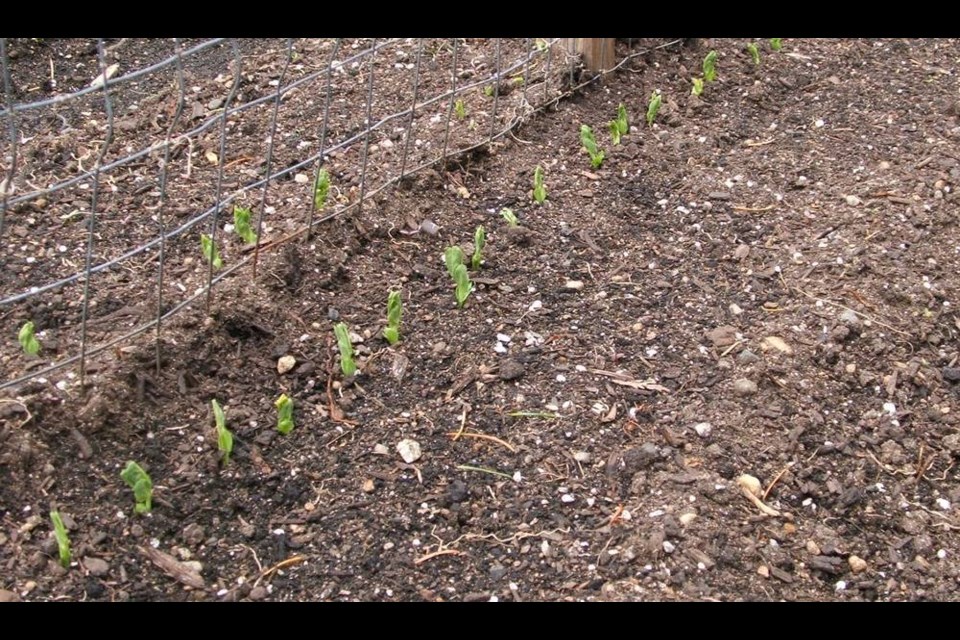Gardeners continue to voice a sense of jubilation this spring. Here’s an email that came in on the morning of my writing this: “The rain was great. My seeds are germinating. Yahoo! I’m finding my garden so exciting this year — Lots of fun.”
Another, on the same day: “I saw irises in bloom today. Beautiful And the dogwoods right now have me on a high.”
I agree that, for gardeners, nothing else quite matches the pleasure of seeing fresh green shoots appearing out of the soil where seeds have been sown.
I’ve been trying to figure out what has made the past month in the garden so sumptuous, with an exceptional amount of bloom all at once. The answer probably lies in the summer-like weather last month that brought on mid-April bloom in plants like a flowering cherry and a species tulip that routinely delay bloom until May. Tulipa bakeri ‘Lilac Wonder’ for years has been a Mother’s Day flower in the garden. This spring, it began opening its distinctive mauve pink and soft yellow blooms three weeks early. After the unseasonal warmth in April came a return to temperatures cold enough to prolong the early flowering well into its more typical timing and beyond, in a sort of “perfect storm” of bloom. It’s really no surprise that we’re all rejoicing in our gardens this spring.
Where’s the upside? It’s gruelling work, slicing straight down into the soil with a sharp-edged digging shovel, lifting up the soil and shaking out the fine mesh of cedar roots for removal.
As I was de-rooting a patch of ground for a second four-metre long seeding of shelling peas, a thought lodged itself in my mind: There has to be some “upside” to this kind of labour. Let me think.
Perhaps work like this, requiring ongoing, dogged persistence, helps to build the sort of tenacity that can be essential during times in life when just “hanging on” is a major victory.
The hard work of digging and bending is bound to build strength and fitness along with tenacity, but the main benefit is surely an intimate contact and relationship with the garden’s soil. With each shovel-full of soil I can see and pick out wireworms and the fat white grubs that are the larvae of the ten-lined June beetle. I recently dug over a dozen of the beetle grubs out of the centre of an oval front garden bed, in an area only about two metres square.
Despite the roots, the soil is lush — plump-textured and friable, loaded with fat worms and probably teeming with beneficial organisms. As soon as the roots are out, the soil is fed with my own compost and a scattering of slow-release, natural-source fertilizer that I make with seed meals, lime, rock phosphate and kelp meal.
It’s like a bank account. It won’t work to continue making withdrawals without keeping the account replenished with deposits. That’s what is happening to soils throughout the world in the many places where “deposits” made to soils are inadequate, or consist mainly of chemically processed inputs. The result is continuing depletion of the world’s soil bank account.
Plump, healthy soils have power. Life depends on them. They foster food security and sequester carbon. Treated as a living thing that needs feeding and care, the soil can keep plants well nourished and produce food rich in minerals and vitamins that keep us amply nourished too.
All abut irises. The Hardy Plant Group of the Victoria Horticultural Society will hold its next meeting, via Zoom, on Tuesday, 7 to 8:30 p.m. Richard Hebda, president of the B.C. Iris Society and Curator Emeritus of the Royal B.C. Museum, will present Iris, the Flower for All Seasons. Learn about the diversity and adaptability of irises, and the possibility they offer of bloom from winter to fall. Dr. Hebda will show participants how to choose, plant and grow different types of irises. Non-members are welcome for a $5 drop-in fee. Email [email protected] for payment instructions. Payment must be received at least 24 hours before the event starts. A link for joining the meeting will be emailed closer to the date. For information about the group, and links of interest to gardeners, visit vichortsociety.org/hardy-plant-group.



